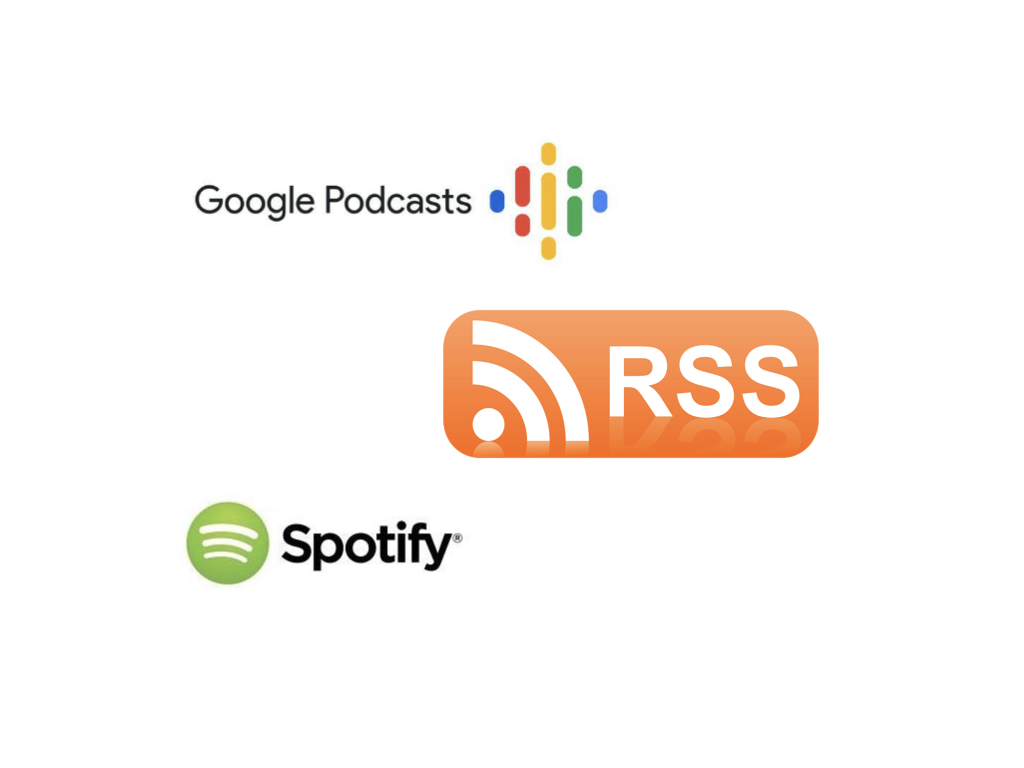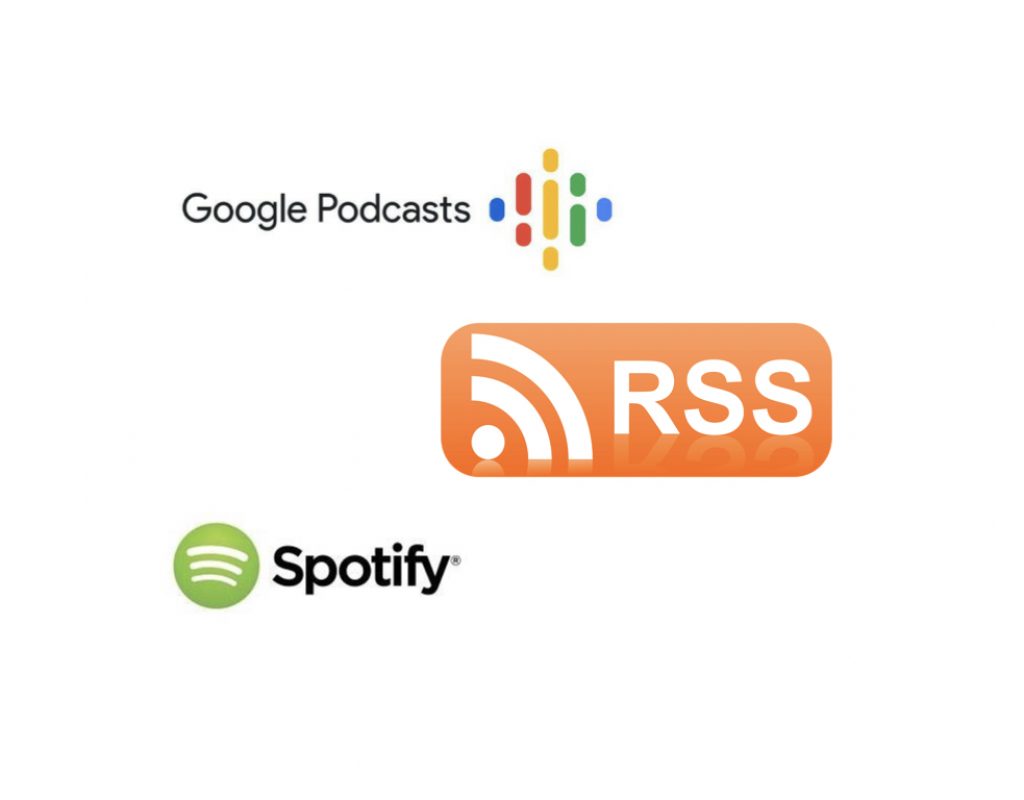
Last week, two important syndication platforms for on-demand audio programming via RSS (i.e. podcasts) indicated their favoritism for self-hosted producers, over most of those who use a media host. The two syndication platforms in question are Google and Spotify. One did it by decree, and the other did it by action, which caused immediate criticism by producers who use a media host/aggregator. This situation favors self-hosted shows, including three of mine, James Cridland’s Podnews, Leo Laporte’s TWiT network and the US FCC’s More Than Seven Dirty Words. Ahead I’ll present the evidence and analyze the situation.
Google Podcasts
Last week, Luis Collado of Google gave a presentation at #JPOD18 in Madrid, Spain about Google Podcasts. After the presentation, Collado took questions from the audience, which consisted mainly of audio producers who syndicate their shows as a podcast via RSS. At 37:23 of the official recording, an unidentified attendee asked the following question, which lasted 16 seconds in Castilian (the most widely used of the five official Spanish languages, recognized by Article 3 of the Spanish Constitution of 1978, not counting the other unofficial Spanish languages and dialects):
My summarized English translation of the core question:
Podcasts are often listed in multiple directories: You syndicate via to iVoox; you syndicate via Spreaker; you syndicate via iTunes; you have your own feed… How are you (Google Podcasts) going to handle that duplicated content? Will it appear several times?
Luis Collado of Google immediately responded (1 minute 17 seconds in Castilian):
My summarized English translation of Collado’s response:
”There we can have a problem. For example, there are podcast aggregators that limit access to robots and spiders, so we can’t index certain information. In fact, that can be their (intentional) strategy and they put up walls to block us: ‘We have our content here and we don’t want it to appear in search engines.’ On the other hand, there are some aggregators that work with Google to open a “back door” for us to access and index. In those cases, Google indexes it, but the consumer must then click and go to the aggregator’s site, which is not the best user experience.”
Later, at 41:40 of the official recording,
My summarized English translation of Melvin Rivera Velázquez’s question:
”A few months ago, CastBox caused Google (the search engine) to index some podcasts on the CastBox website BEFORE they were indexed by Google Podcasts from the original source. Are you doing something to prevent this?”
Luis Collado of Google immediately responded (55 seconds in Castilian):
My summarized English translation of Collado’s response:
Our idea —and in fact, that’s part of my job— is to work with the producers, the distributors, the creators, the podcasters, not with intermediaries”… “It would have been much easier for us, for example, to make a deal with iVoox and index it, but that would not be the best user experience and it’s not our idea. The user should play directly from the original source.”
The original #JPOD18 recording was made by Asociación Madrileña de Podcasting and can be found here, although its audio level is painfully low compared to the normalized clips embedded above.
The case of Spotify
I will first clarify that three of my four active shows, which are all currently self-hosted (BeyondPodcasting, CapicúaFM and Tu salud secreta) are already syndicated in Spotify and I already have direct access to their Spotify statistics.
See also my related article Branded RSS in the era of platform expulsion, illustrated above.
Last week, several members of Melvin Rivera Velázquez’ Facebook group Preguntas sobre Podcasting (Questions about Podcasting) manifested their chain of problems with Spotify, directly related to the fact that they had initially asked their respective aggregator to submit their show to Spotify on their behalf, and then wanted to change that to have better control and access to stats. The conversation on Preguntas sobre Podcasting was initiated by Pepe Barrascout Ortiz on October 10, 2018. His first message begins with (translation ahead):
Hoy sí me decepcionó Spotify:
- Quiero agregar de forma independiente un podcast, Spotify no me deja, dice que ya existe.
- Pregunto, Spotify dice que le diga a mi agregador que me desuscriba de Spotify para poder hacerlo yo de forma independiente.
- Mi agregador me desuscribe
- Spotify no me deja registrarme, pregunto de nuevo.
- Spotify dice que no aceptan podcasts que han sido anteriormente registrados por un agregador.
- Pregunto a Spotify que por qué me dijo que pidiera a mi agregador que me desuscribiera para hacerlo yo y ahora no me dejan suscribirme de forma independiente.
- Spotify responde “nuestros ingenieros están trabajando en eso”. Por el momento solo acepta podcasts que no estén registrados por un agregador.
- ¿WTF Spotify?
My translation in English:
Today, Spotify really let me down:
- I want to submit a podcast independently to Spotify. Spotify doesn’t let me, since it was there previously via an aggregator.
- I ask Spotify. Spotify says to ask my aggregator to unsubscribe my show so I can do it myself.
- My aggregator unsubscribes me.
- Spotify doesn’t let me submit the podcast. I ask Spotify again.
- Spotify responds that it doesn’t accept podcasts that were previously submitted by an aggregator.
- I ask Spotify why they told me to ask my aggregator to unsubscribe me to do it myself, and now they don’t let me do it independently.
- Spotify responds: “Our engineers are working on that”.
- WTF Spotify?
There have been a whole stream of other participants of the Preguntas sobre Podcasting Facebook group who have had the exact same problem. I feel bad for them, but fortunately, I didn’t have that problem, since I only submitted my shows to Spotify directly and independently.
Further clarification
This situation with Google and —at least temporarily with Spotify— underlines even further the importance of controlling your own RSS feed, based exclusively on your own domain, whether you self-host (as I currently do, and as do Podnews, TWiT and the US FCC’s More Than Seven Dirty Words) or use and control your own RSS based exclusively upon your own domain on the very few media hosts which allow it, as detailed in Branded RSS in the era of platform expulsion. If you do the latter, do not ask your aggregator/media host to submit to Spotify on your behalf. Instead, do it yourself to retain full control. And if you are submitting to a syndication platform that creates a different RSS feed from your own, request that second RSS feed be de-activated immediately.
Use Spreaker as secondary distribution, apps and live broadcasting
Even though that Spreaker does not currently allow producers to have a custom domain name RSS feed (as confirmed by Rob Greenlee, VP of Podcaster Relations and covered in detail in Branded RSS in the era of platform expulsion), there is indeed a way to take advantage of some of Spreaker’s unique features (i.e. an inexpensive branded app for your show Android and iOS and for live broadcasting and live broadcasting), without any the negatives explained in this and that other article. For self-hosters —or those who use one of the few media hosts that allow using your own domain as the RSS feed, you should:
- Create a paid Spreaker account.
- Use your current branded RSS feed (with your own domain or subdomain) as the source for Spreaker.
- Immediately de-activate the Spreaker-generated RSS feed in the Spreaker CMS control panel.
- Do not ask Spreaker to submit your show to Spotify. Do it yourself.
In addition to Spreaker’s live broadcasting, Spreaker also offers the best price I have ever seen for a branded show app for Android and iOS: currently US$99 per year, per platform, in addition to the cost of your Spreaker plan.
(Re-)Subscribe for upcoming articles, reviews, radio shows, books and seminars/webinars
Stand by for upcoming articles, reviews, and books. Sign up to my free mailing list by clicking here. If you previously subscribed to my bulletins and no longer receive them, you must re-subscribe due to new compliance to GDPR. Most of my current books are at books.AllanTepper.com, and also visit radio.AllanTepper.com.
Si deseas suscribirte (o volver a suscribirte) a mi lista en castellano, visita aquí. Si prefieres, puedes suscribirte a ambas listas (castellano e inglés).
Suscribe to his BeyondPodcasting show at BeyondPodasting.com.
Subscribe to his Tu radio global show at Turadioglobal.com.
Subscribe to his Tu salud secreta show at TuSaludSecreta.com.
Subscribe to his CapicúaFM show at CapicúaFM.com.
Save US$20 on Project Fi, Google’s mobile telephony and data
Click here to save US$20 on Project Fi, Google’s mobile telephone and data service which I have covered in these articles.
FTC disclosure
No manufacturer is specifically paying Allan Tépper or TecnoTur LLC to write this article or the mentioned books. Some of the other manufacturers listed above have contracted Tépper and/or TecnoTur LLC to carry out consulting and/or translations/localizations/transcreations. Many of the manufacturers listed above have sent Allan Tépper review units. So far, none of the manufacturers listed above is/are sponsors of the TecnoTur , BeyondPodcasting or TuNuevaRadioGlobal programs, although they are welcome to do so, and some are, may be (or may have been) sponsors of ProVideo Coalition magazine. Some links to third parties listed in this article and/or on this web page may indirectly benefit TecnoTur LLC via affiliate programs. Allan Tépper’s opinions are his own.
Copyright and use of this article
The articles contained in the TecnoTur channel in ProVideo Coalition magazine are copyright Allan Tépper/TecnoTur LLC, except where otherwise attributed. Unauthorized use is prohibited without prior approval, except for short quotes which link back to this page, which are encouraged!


